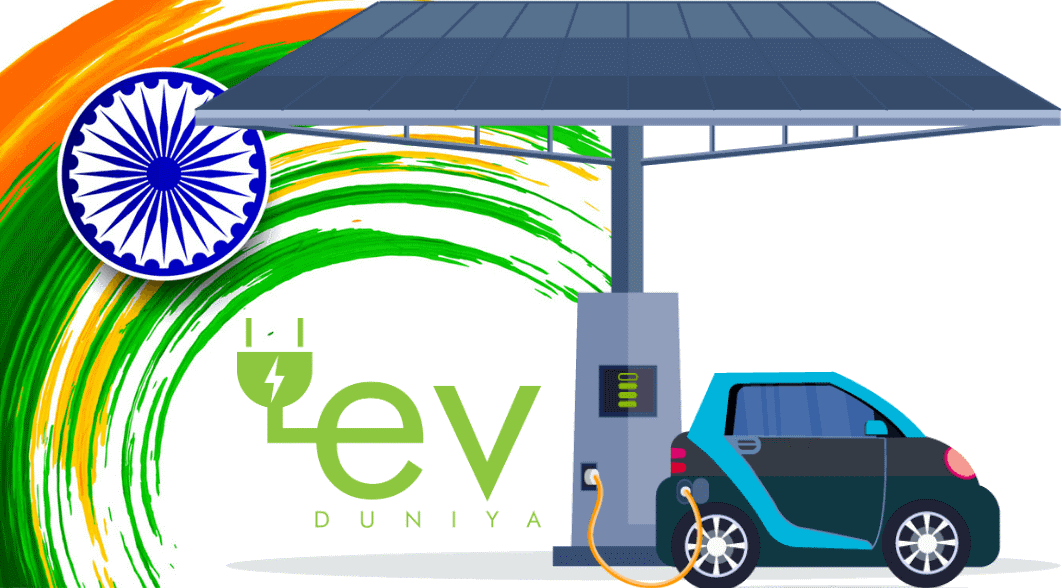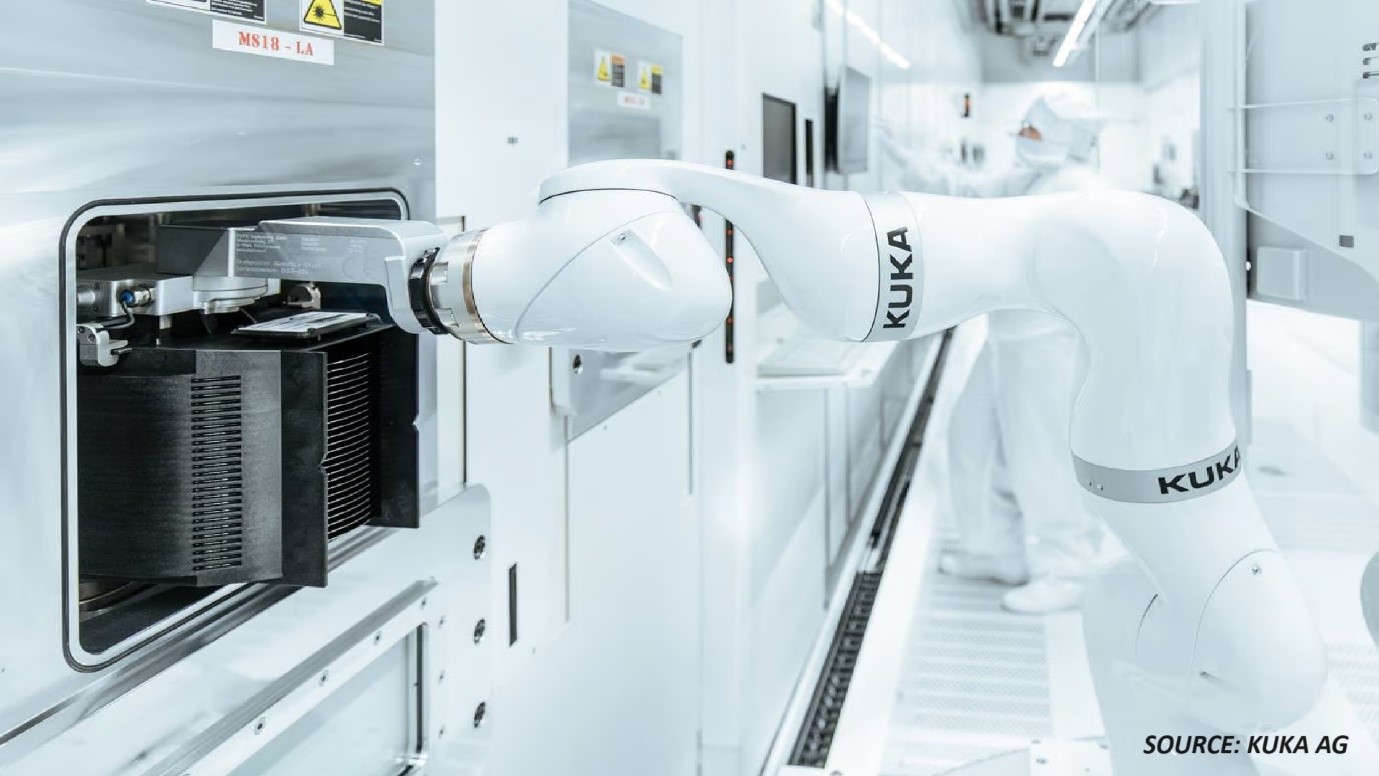
Africa Electric Vehicle (EV) Charging Market by Charging Type (Off-Board Top-Down Pantograph, On-Board Bottom-Up Pantograph, and Charging Via Connector), Charging Voltage Level (Level 1 (<3.7 KW), Level 2 (3.7–22 KW), and Level 3 (Above 22 KW)), Charger Type (Slow Charger and Fast Charger), Vehicle Charging (AC, DC, Inductive Charging), Application (Commercial and Residential), Commercial (Commercial Public EV Charging Stations, On-Road Charging and Commercial Private EV Charging Stations), Installation Type (Portable Charger and Fixed Charger), IoT Connectivity (Non-Connected Charging Stations and Smart Connected Charging Stations (Networked)) and Charging Standard (CCS, CHADEMO & GB/T, Type 1/Normal Charging, Tesla Super Charger, Type-2, and Level 3) – Opportunity Analysis and Industry Forecast 2023–2030
Industry: Automotive & Transportation | Publish Date: 27-Sep-2023 | No of Pages: 90 | No. of Tables: 72 | No. of Figures: 41 | Format: PDF | Report Code : N/A
Market Definition
The Africa Electric Vehicle (EV) Charging Market was valued at USD 31.93 million in 2022, and is predicted to reach USD 256.53 million by 2030, with a CAGR of 30.3% from 2023 to 2030. Electric vehicle chargers are characterized by the rate at which they deliver energy to the vehicle's battery. They serve as a vital infrastructure connecting plug-in electric vehicles to electrical outlets for the purpose of recharging the vehicle's battery. These chargers facilitate the charging process by supplying the necessary electrical energy to the EV's battery.
Charging stations are compatible with electric vehicles, neighborhood electric vehicles (NEVs), and plug-in hybrids, allowing them to connect to an electrical source for charging. Some charging stations come equipped with advanced functionalities such as smart meters, cellular connectivity, and network access.
The charging of EVs can be carried out through several levels of charging such as level 1, level 2, and level 3. The higher the level of charging, the faster the charging process causing more power to be delivered to the vehicle. The use of electric vehicles significantly reduces the carbon footprints released into the atmosphere, which contain toxic gas. The growing threat of carbon emissions and other harmful gases stemming from transportation has triggered the vital necessity of adopting electric vehicles.
In addition, the penetration of EV charging is high in commercial spaces as compared to residential ones. Long-distance trips would benefit from ultra-fast charging capabilities made possible by public charging infrastructure. However, EV chargers for residential spaces offer significant growth potential as they are affordable and more convenient for charging electric vehicles as compared to commercial charging stations.
Growing EV Sales and Infrastructure Developments Propel Electric Vehicle Charging in Africa
In South Africa, the growth of electric vehicle (EV) charging infrastructure is closely tied to the increasing sales of electric vehicles. As more South Africans recognize the environmental benefits and cost-efficiency of EVs, the demand for accessible charging stations has risen significantly. To meet this demand, both public and private sectors have invested in expanding EV charging networks. The South African government has also implemented policies and incentives to encourage EV adoption and support infrastructure development, making it more convenient and practical for consumers to choose electric vehicles as an eco-friendly mode of transportation.
For instance, in August 2022, Audi partnered with GridCars to install 33 electric vehicle (EV) charging stations across the country. These represent a total of 70 charge point connectors and expands on the existing network in the country. These charger range in their charging capacity from 22kW (AC) to 80kW (DC) and 150kW (DC) ultra-fast charging and are immediately available to all South African electric vehicle drivers, regardless of model or brand ownership.
Government Initiatives to Boost EV Production Drive Electric Vehicle Charging Market in Africa
The electric vehicle charging market is primarily propelled by government initiatives aimed at accelerating electric vehicle (EV) production. Governments worldwide are implementing policies such as subsidies, tax incentives, and emissions regulations to encourage automakers to manufacture more EVs. As EV production increases, the demand for accessible and convenient charging infrastructure rises, driving the growth of market.
These government-driven efforts not only support the expansion of clean and sustainable transportation options but also stimulate the development of the necessary infrastructure to facilitate widespread EV adoption. For instance, in September 2022, The Minister for trade and industry, Ryad Mezzour, announced that the country would have to raise its electric vehicle production to 100,000 every two years against its current 50,000 electric cars production.
Fast Chargers' High Initial Setup Costs Hinder the EV Charging Market Growth
The absence of incentives and concerns about the steep installation expenses for EV chargers could hinder the sector's growth. One of the most significant obstacles to expanding this industry is the substantial upfront cost associated with level 3 and ultra-fast chargers. While level 1 and level 2 chargers can require anywhere from 6 to 16 hours for a full charge, consumers are accustomed to refuelling their conventional fossil fuel vehicles in just 5 to 7 minutes.
Fast chargers that can charge EVs in under 30 minutes are therefore in demand on the market. A level 3 charging station can be somewhat expensive at first, though. For those who might want to transition to EVs, this could be a deterrent because a lengthy charging period might interfere with their already hectic schedules.
Surging Adoption of Vehicle-to-Grid (V2G) EV Charging Stations in Africa Unlocks Promising Opportunities
A technology called vehicle-to-grid (V2G) EV charging allows plug-in EVs and the power grid to exchange electrical energy in both directions. Electric vehicles (EVs) can store extra electricity and release it to the grid thanks to V2G technology. This may enhance the functionality of the electrical component and increase value for EV owners.
The development of this concept has made charging for electric vehicles easier, and EVs are now among people's top transportation options. As a result, the entire market for charging stations is essential for connecting the electric vehicle to the grid and enabling the vehicle to charge.
Two V2G EV vehicle charging stations were erected by Enel Energia S.p.A. at the Italian Institute of Technology's Genoa headquarters. The installation is a part of MOV-E, a Nissan-sponsored corporate electric car sharing trial project. The Italian Institute of Technology received two battery electric vehicles (LEAF models) from Nissan as well as the Glide app management platform. The partnership between Enel and Nissan represents a shift in the way that technology is used for sustainable transportation.
As a result, manufacturers have a great chance with the V2G charging technology because it is predicted to change the EV industry and determine how EVs will be charged in the future. Although V2G infrastructure is more beneficial than smart charging, installing V2G charging stations has a hefty up-front cost. Manufacturers of EV connectors are projected to have opportunities to produce sophisticated connectors to withstand electrical architecture due to the predictable and anticipated expansion of V2G technology.
Competitive Landscape
The Africa Electric Vehicle (EV) charging industry includes several market players such as ABB Ltd., ChargePoint, Inc, Tesla Inc, Shell Recharge Solutions, Star Charge, TELD, Siemens, BYD, EVgo, and Hyundai Motor Company.
Key Benefits
-
The Africa Electric Vehicle (EV) charging market report provides a quantitative analysis of the current market and estimations through 2023-2030 that assists in identifying the prevailing market opportunities to capitalize on.
-
The study comprises a deep dive analysis of the market trend including the current and future trends for depicting the prevalent investment pockets in the market.
-
The information related to key drivers, restraints, and opportunities and their impact on the market is provided in the report.
-
The competitive analysis of the market players along with their market share in the Africa Electric Vehicle (EV) charging market.
-
The SWOT analysis and Porter’s Five Forces model are elaborated in the study.
-
Value chain analysis in the market study provides a clear picture of the stakeholders’ roles.
Africa Electric Vehicle (EV) Charging Market Key Segments
By Charging Type
-
Off-Board Top-Down Pantograph
-
On-Board Bottom-Up Pantograph
-
Charging Via Connector
By Charging Voltage Level
-
Level 1 (<3.7 KW)
-
Level 2 (3.7–22 KW)
-
Level 3 (Above 22 KW)
By Charger Type
-
Slow Charger
-
Fast Charger
By IOT Connectivity
-
Non-Connected Charging Stations
-
Smart Connected Charging Stations (Networked)
By Vehicle Charging
-
AC (Normal Charging)
-
DC (Super Charging)
-
Inductive Charging
By Application
-
Commercial
-
Residential
By Commercial
-
Commercial Public EV Charging Stations
-
On-Road Charging
-
Parking Spaces
-
Destination Chargers
-
-
Commercial Private EV Charging Stations
-
Fleet Charging
-
Captive Charging
-
By Installation Type
-
Portable Charging
-
Fixed Charging
-
Wall Mount
-
Pedestal Mount
-
Ceiling Mount
-
By Charging Standard
-
CCS
-
CHADEMO & GB/T
-
Type 1/Normal Charging
-
Tesla Super Charger
-
Type-2
-
Level 3
Report Scope and Segmentation
|
Parameters |
Details |
|
Market Size in 2022 |
USD 31.93 Million |
|
Market Volume in 2022 |
4 Thousand Units |
|
Revenue Forecast in 2030 |
USD 256.53 Million |
|
Growth Rate |
CAGR of 30.3% from 2023 to 2030 |
|
Analysis Period |
2022–2030 |
|
Base Year Considered |
2022 |
|
Forecast Period |
2023–2030 |
|
Market Size Estimation |
Million (USD) |
|
Growth Factors |
The increasing government initiatives. The rise in the sales of electric vehicles. |
|
Companies Profiled |
10 |
|
Market Share |
Available for 10 companies |
|
Customization Scope |
Free customization (equivalent up to 80 working hours of analysts) after purchase. Addition or alteration to country, regional, and segment scope. |
|
Pricing and Purchase Options |
Avail customized purchase options to meet your exact research needs. |
Key Players
-
ABB Ltd.
-
ChargePoint, Inc
-
Tesla Inc
-
Shell Recharge Solutions
-
Star Charge
-
TELD
-
Siemens
-
BYD
-
EVgo
-
Hyundai Motor Company




 Speak to Our Analyst
Speak to Our Analyst


































